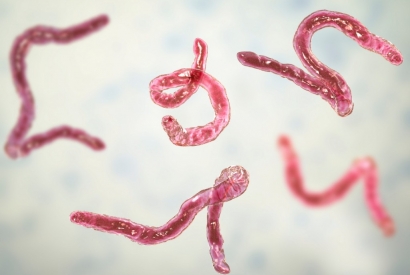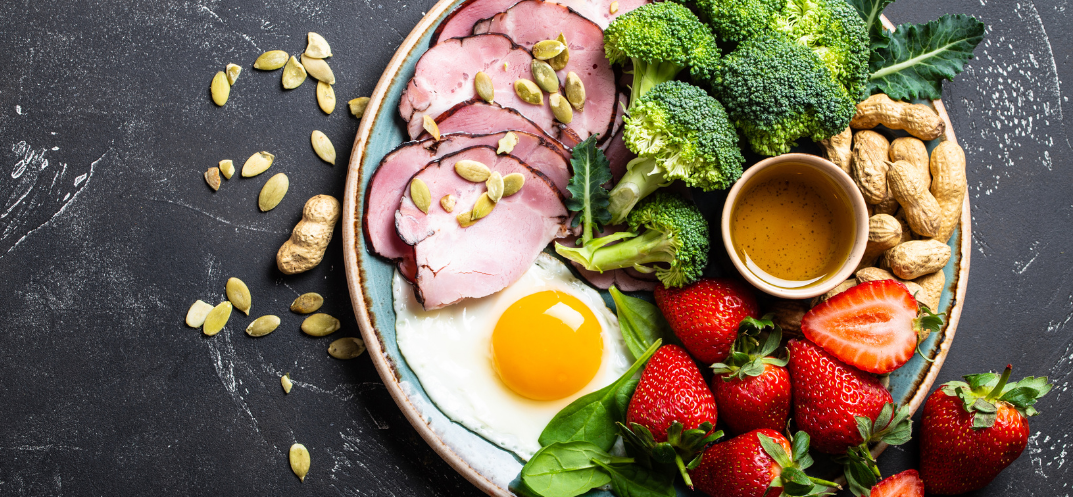
Treatment of Parasites
When we suffer from Lyme disease, we often also have parasites. The reason for this is because Lyme weakens our immune system. Additionally, our intestinal microflora if often destroyed by long-term antibiotic therapy, which makes us particularly vulnerable to human parasites. Proper diagnosis and treatment are particularly important in this case, since without a prior treatment of the parasitic infection, treatment of Lyme disease may not bring the desired results.
One of the methods of treatment of parasites is pharmacological treatment . However, more and more people are leaning towards natural methods of treatment such as diet and herbal medicine. The combination of these two methods can bring spectacular results.
Antiparasitic Diet
Our diet in general should be rich in nutrients and consist of unprocessed, wholesome foods. It should be both anti-inflammatory and antifungal. It should also support our digestive system. Therefore, it is worth to adhere to several principles:
1. Completely exclude sugar from your diet and all products which contain it. We will find among them glucose syrup, agave, maple, dactylic, cane sugar, brown, honey, maltose, yeast, candy, bars, but also ready-made sauces, ketchup or soy sauce. Sugar exacerbates inflammation in the body and weakens the immune system. It is an ideal medium for the growth of parasites.
2. Eat foods rich in antioxidants. Antioxidants inhibit the development of free radicals, which act destructively on the immune system. The diet should include berries, blueberries, aronia, green vegetables, tomatoes, as well as beets, cabbage, raw carrots, garlic and onions. It is also important to include supplementation with Vitamin D.
3. Exclude wheat flour from the diet. This highly processed type of simple carbohydrates is an ideal food for human parasites. Replace them with full-value carbohydrates that support our microbiota-millet, barley, buckwheat, amaranth, quinoa, rye.
4. Exclude from the diet dairy products and processed and poor quality meat. These products will hinder the body's fight against pathogens. Replace them with legumes, good quality fish or eggs.
5. Limit alcohol. Alcohol is a toxin that weighs heavily on our nervous system, leaches out electrolytes and promotes the multiplication of pathogens. In people suffering from Lyme disease with parasitic infections often causes worsening of their symptoms and in general have adverse effect on their health.
6. Add more herbs in your menu. Useful spices can be fennel, cloves, cayenne pepper, thyme or ginger.
7. Drink plenty of water! It's the best way to detox.

Antiparasitic herbs
Herbs are becoming increasingly popular and appreciated in the course of anti-parasitic treatment, as they have wide spectrum of activity, when chemical drugs usually remove only one, a given type of parasite.
One of the most well-known and effective herbs for removing parasites from the digestive system is Mimosa pudica. It helps to "peel" the parasites from the walls of the intestine and remove them from the body.
A very useful herb is also Chaparro Amargosa, which has an antiparasitic effect, and also has a positive effect on the work of the digestive system. The herb is used for chronic inflammation of the gastrointestinal tract and candidiasis.
Oregano oil is another excellent disinfectant, often called a natural antibiotic. Its antiviral and antifungal properties are ideal in the fight against dangerous microbes, including parasites.
Also wormwood and black walnut are herbs with a toxic effect on parasites.
The combination of a balanced, individual diet with the right herbs will support our immune system and allow us to get rid of parasites from our body in a completely natural, non-invasive way.

 Boosting Your Libido Naturally with Herbal Supplements
Boosting Your Libido Naturally with Herbal Supplements
 Unlocking Energy Potential: Shilajit's Impact on ATP Production and Vitalit
Unlocking Energy Potential: Shilajit's Impact on ATP Production and Vitalit
 Collagen's Role in Lyme Disease Recovery: Understanding Its Vital Benefits
Collagen's Role in Lyme Disease Recovery: Understanding Its Vital Benefits
 Helicobacter Pylori- Natural Treatment
Helicobacter Pylori- Natural Treatment
 Sleep and Immunity
Sleep and Immunity